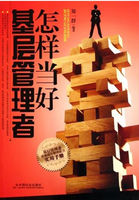IN the autumn following the end of the Franco-German war, Dr.
Bird and I visited all the principal battlefields. In England the impression was that the bloodiest battle was fought at Gravelotte. The error was due, I believe, to our having no war correspondent on the spot. Compared with that on the plains between St. Marie and St. Privat, Gravelotte was but a cavalry skirmish. We were fortunate enough to meet a German artillery officer at St. Marie who had been in the action, and who kindly explained the distribution of the forces. Large square mounds were scattered about the plain where the German dead were buried, little wooden crosses being stuck into them to denote the regiment they had belonged to. At Gravelotte we saw the dogs unearthing the bodies from the shallow graves. The officer told us he did not think there was a family in Germany unrepresented in the plains of St. Privat.
It was interesting so soon after the event, to sit quietly in the little summer-house of the Chateau de Bellevue, commanding a view of Sedan, where Bismarck and Moltke and General de Wimpfen held their memorable Council. 'Un terrible homme,' says the story of the 'Debacle,' 'ce general de Moltke, qui gagnait des batailles du fond de son cabinet a coups d'algebre.'
We afterwards made a walking tour through the Tyrol, and down to Venice. On our way home, while staying at Lucerne, we went up the Rigi. Soon after leaving the Kulm, on our descent to the railway, which was then uncompleted, we lost each other in the mist. I did not get to Vitznau till late at night, but luckily found a steamer just starting for Lucerne. The cabin was crammed with German students, each one smoking his pipe and roaring choruses to alternate singers. All of a sudden, those who were on their legs were knocked off them. The panic was instantaneous, for every one of us knew it was a collision. But the immediate peril was in the rush for the deck. Violent with terror, rough by nature, and full of beer, these wild young savages were formidable to themselves and others. Having arrived late, I had not got further than the cabin door, and was up the companion ladder at a bound. It was pitch dark, and piteous screams came up from the surrounding waters. At first it was impossible to guess what had happened. Were we rammed, or were we rammers? I pulled off my coats ready for a swim.
But it soon became apparent that we had run into and sunk another boat.
The next morning the doctor and I went on to England. A week after I took up the 'Illustrated News.' There was an account of the accident, with an illustration of the cabin of the sunken boat. The bodies of passengers were depicted as the divers had found them.
On the very day the peace was signed I chanced to call on Sir Anthony Rothschild in New Court. He took me across the court to see his brother Lionel, the head of the firm. Sir Anthony bowed before him as though the great man were Plutus himself.
He sat at a table alone, not in his own room, but in the immense counting-room, surrounded by a brigade of clerks.













